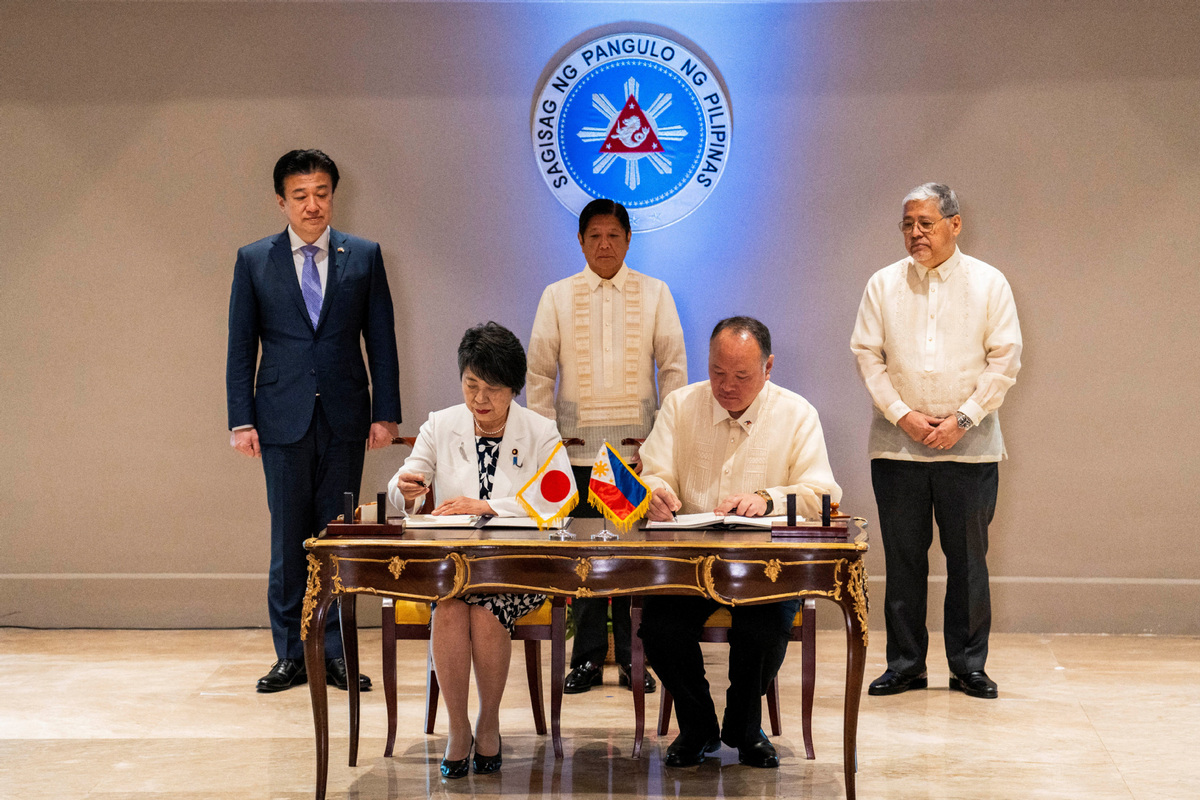
The Asia-Pacific region "does not need any military bloc", still less groupings that stir up bloc confrontation or a new Cold War, Beijing said on Monday in response to a major military deal signed by Tokyo and Manila.
On Monday, the Philippines and Japan signed the Reciprocal Access Agreement, which will allow the two nations to deploy forces on each other's soil and conduct joint training.
"Any move that undermines the peace and stability of the region and harms regional unity and cooperation will be met with vigilance and opposition from people in countries in the region," Foreign Ministry spokesman Lin Jian said at a daily news conference in Beijing.
He pointed to the fact that during World War II, Japan invaded and colonized Southeast Asian countries including the Philippines.
For that, Japan "bears a grave historical responsibility", he said.
The agreement is expected to facilitate joint training exercises between the Japanese Self-Defense Forces and the Philippine military, according to The Philippine Star newspaper.
"It will also establish guidelines for handling weapons and ammunition during these exercises, as well as jurisdiction over criminal acts and accidents," it added.
Japanese Foreign Minister Yoko Kamikawa described the pact as a "landmark achievement".
The deal "is the first of its kind "signed by Japan in Asia, and will take effect after being ratified by both countries' parliaments, Reuters reported.
Philippine Armed Forces chief Romeo Brawner told reporters last week that the Reciprocal Access Agreement "is important because it will allow Japanese forces, Japanese troops to come into our country to conduct training with us. It will also allow our troops to go to Japan to train with them".
Lin, the Foreign Ministry spokesman, called on Tokyo to earnestly reflect on its history of aggression and colonial rule during WWII and "act prudently in fields related to the military and security".
"Exchanges and cooperation between countries should not damage mutual understanding and trust among countries in the region. It should not threaten regional peace and stability, target any third party, or harm the interests of any third party," he said.
zhangyunbi@chinadaily.com.cn





